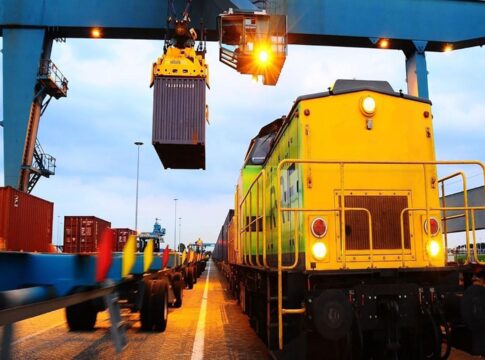The Nigerian Railway Corporation (NRC) is ramping up freight operations between Lagos and the Kaduna Inland Dry Port, aiming for full capacity utilization by the second quarter of 2025. This move is expected to ease congestion at seaports, reduce transport costs, and accelerate trade across Nigeria’s northern and southern regions.
Managing Director of the NRC, Dr. Kayode Opeifa, confirmed the plan in a video shared on the corporation’s official X (formerly Twitter) account. “We are determined to ensure maximum movement of goods along both narrow and standard gauge rail lines,” Opeifa said. “By the second quarter, freight transport to the Kaduna Inland Dry Port will reach 100% capacity.”
READ MORE: Nigeria’s Non-Oil Exports Surge by 20.7%, Trade Volume Hits 7.2 Million Metric Tons
The dry port, commissioned in 2018, was designed as a key logistics hub for exports, particularly agricultural products. However, it has operated below capacity due to infrastructure challenges and intermittent disruptions. In September 2020, rail freight operations were suspended for over a year due to railway track rehabilitation, affecting container movement between Apapa Port and Kaduna.
Omotayo Dada, Managing Director of Inland Containers Nigeria Limited, expressed optimism about the initiative. “We expect productivity to increase by 70% within a few quarters, with significant improvements before the year ends,” Dada said.
The push for full capacity aligns with broader efforts to enhance Nigeria’s freight network. The Federal Executive Council (FEC) recently approved a $45.3 million contract for a feasibility study and engineering design of a new rail corridor. The proposed line will connect Badagry Deep Sea Port, Tin Can Seaport, Apapa Seaport, and Lekki Seaport to the national rail system, strengthening logistics and boosting economic growth.




